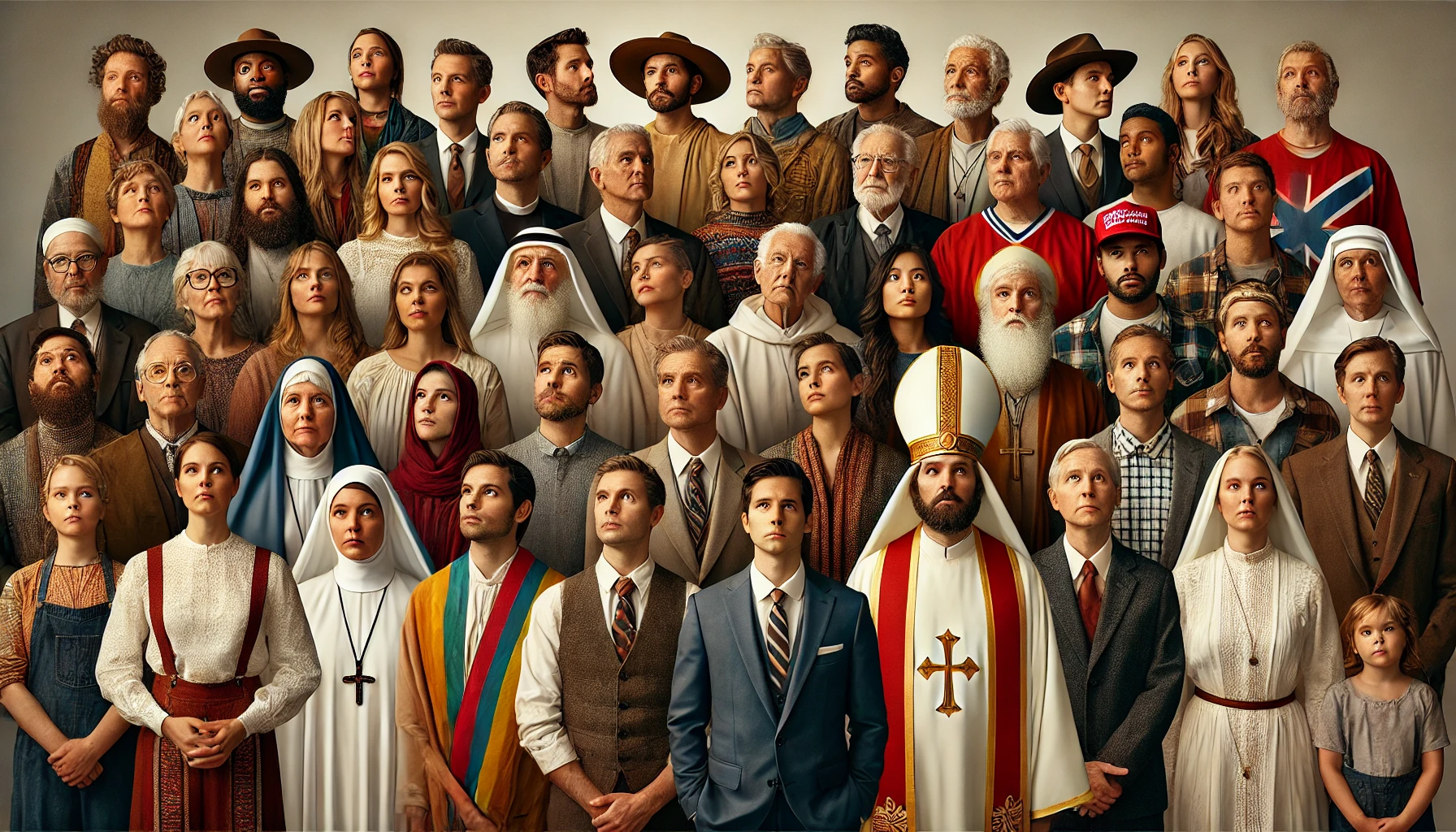Christianity claims to be founded on the teachings of a single figure, Jesus of Nazareth, and guided by the same sacred text, the Bible. Yet, paradoxically, there are over 45,000 different Christian denominations worldwide, each asserting its interpretation of the “truth.” This startling fragmentation raises a provocative question: Why are there so many different Christian denominations?
Secular investigations into early Christian texts and historical records reveal that the roots of this division lie not in divine revelation but in human conflict, political agendas, and evolving theological interpretations. Scholars who specialize in early Christianity and ancient manuscripts, like Bart D. Ehrman, Elaine Pagels, and Karen L. King, provide compelling evidence that challenges the traditional narrative of a unified early Church.
The Absence of a Unified Doctrine in Early Christianity
The earliest Christian communities were far from united. Ancient texts such as the Gospel of Thomas, the Gospel of Mary, and the Didache reflect a wide range of beliefs and practices that often contradict the canonical gospels. Bart D. Ehrman, in Lost Christianities, points out that early Christianity was a mosaic of competing sects—Gnostics, Marcionites, Ebionites, and others—each claiming to possess the true teachings of Jesus. There was no single, agreed-upon doctrine in the first few centuries.
The Role of Political Power in Shaping Orthodoxy
The formation of what we now consider “orthodox” Christianity was heavily influenced by political power rather than spiritual consensus. The Council of Nicaea in 325 CE, convened by Emperor Constantine, was less about divine truth and more about political unity within the Roman Empire. Karen L. King highlights how theological debates, such as the nature of Christ’s divinity, were settled not through divine inspiration but by imperial decree. The Nicene Creed was enforced by the state, and dissenting views were labeled heresies and violently suppressed.
Manuscript Evidence: Contradictions and Variations
Secular scholars have uncovered thousands of ancient biblical manuscripts, and none are identical. The Codex Sinaiticus and the Codex Vaticanus, two of the oldest complete New Testament manuscripts, contain significant variations. Elaine Pagels, in The Gnostic Gospels, notes how these discrepancies reveal a history of editing, additions, and omissions aimed at reinforcing specific theological agendas. The Bible was not a static, divinely protected text but a dynamic collection shaped by human hands over centuries.
The Reformation: A Catalyst for Denominational Explosion
Fast forward to the 16th century, and we witness the Protestant Reformation, a seismic event that shattered the illusion of Christian unity. Martin Luther’s challenge to the Catholic Church’s authority ignited a wildfire of theological debates, leading to countless new denominations. The principle of “sola scriptura” (scripture alone) ironically fueled endless interpretations, as individuals claimed the right to read and understand the Bible for themselves. This opened the floodgates to a never-ending proliferation of sects, each convinced of their doctrinal correctness.
The Psychological and Cultural Drivers of Division
Human nature itself plays a role. Social psychology suggests that people gravitate towards groups that reflect their personal beliefs and identities. As cultures evolved, so did interpretations of Christianity to fit local customs, languages, and political systems. This adaptability ensured Christianity’s survival but also guaranteed its fragmentation. Every schism, from the Great Schism between Eastern Orthodoxy and Roman Catholicism to modern evangelical movements, reflects this intrinsic human tendency towards division.
A Man-Made Patchwork of Beliefs
The overwhelming diversity of Christian denominations is not evidence of divine mystery but of human history. Secular scholarship reveals that Christianity was never a monolithic faith. Its doctrines have been shaped by political power, cultural shifts, and countless theological disputes. The Bible itself is a product of human editing, reflecting the biases and conflicts of its time.
Understanding this history doesn’t diminish the personal faith of believers, but it challenges the notion that Christianity has a singular, unbroken truth. Instead, it is a complex, evolving tapestry woven from the threads of human belief, power struggles, and historical contingencies.
Sources:
- Ehrman, Bart D. Lost Christianities: The Battles for Scripture and the Faiths We Never Knew
- Pagels, Elaine. The Gnostic Gospels
- King, Karen L. What Is Gnosticism?
- The Codex Sinaiticus and Codex Vaticanus Manuscript Studies
- Council of Nicaea Proceedings, 325 CE
- Luther, Martin. 95 Theses
- The Didache and Other Early Christian Texts

